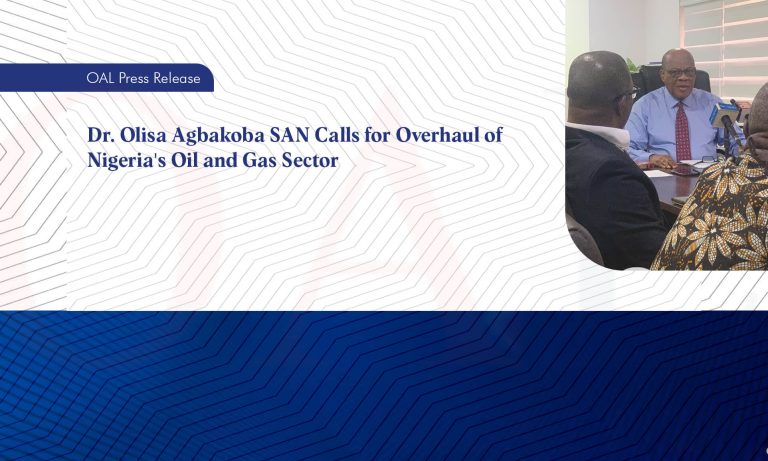
Blockchain and Cryptocurrency Regulations: Navigating the Evolving Landscape in Nigeria

In recent years, Nigeria has witnessed a surge in the adoption of blockchain technology and cryptocurrency, signalling a growing interest in digital assets among businesses and investors.[1] EMURGO Africa, in strategic partnership with PwC, unearthed compelling statistics, reporting the pivotal rise of blockchain investments within Africa. Blockchain funding soared by a stunning 1,668% in 2022 compared to the preceding year, accumulating a total of USD 91 million in countries like Kenya, South Africa, and Nigeria.[2] However, navigating blockchain and cryptocurrency regulations in Nigeria has been a complex twist with the recent saga with Binance in Nigeria.[3]
In this article, we explore the dynamic regulatory environment of blockchain and cryptocurrencies in Nigeria, including recent legislative developments and industry responses to these developments.
Blockchain and Cryptocurrency Regulations in Nigeria: The Story So Far
Blockchain and cryptocurrency regulations in Nigeria have undergone significant transformation, shifting from an opposing stance to a more receptive disposition in recent years.
1. Central Bank Of Nigeria Circular Restricting Banks And Other Financial Institutions From Operating Accounts For Cryptocurrency Service Providers:
In February 2021, the Central Bank of Nigeria took a bold step in issuing a circular restricting banks and other financial institutions from operating accounts for cryptocurrency service providers in view of the money laundering and terrorism financing risks and vulnerabilities inherent in their operations.[4] This was not a ban on cryptocurrency per say but a strong restriction on banks dealing with crypto assets.
2. Money Laundering (Prevention and Prohibition) Act, 2022:
On 13 May 2022, President Muhammadu Buhari assented to the Money Laundering (Prevention and Prohibition) Bill 2022[5]. The enactment of this Act in 2022 brought a spark of hope in this sector as virtual asset service providers (VASPs) in section 30 were recognised as part of financial institutions. Nigeria’s Money Laundering Act 2022 is the first legislative recognition of virtual assets in Nigeria, and it enabled the CBN to revise its earlier prohibition of banking services for VASPs.[6]
3. Securities and Exchange Commission Rules on Issuance, Offering, and Custody of Digital Assets and VASPs:
In the same month that the Money Laundering (Prevention and Prohibition) Act 2022 was passed, the Securities and Exchange Commission issued Rules on Issuance, Offering, and Custody of Digital Assets and VASPs to provide a regulatory framework for their operations in Nigeria.[7]
Also read: Differences between a Producer and an Executive Producer in the Film Industry
Recent Policy Developments Between 2023 and 2024
Since late 2023, there have been fluctuations in the naira rates, causing inflation in the country. It is believed that this is due to the false representation of naira rates on some exchange platforms, hence a recent regulatory drama ensued between the government and the crypto service providers in Nigeria.
1. CBN’s Regulatory Sandbox:
In 2023, the Central Bank of Nigeria (CBN) launched a regulatory sandbox for blockchain and fintech innovation payment systems. The regulatory sandbox provides a controlled environment for fintech startups and financial institutions to test new blockchain-based products and services while ensuring compliance with existing regulations. This initiative reflects a willingness on the part of the CBN to embrace innovation in the fintech space and foster the development of blockchain technology.[8]
2. SEC’s Regulation of Cryptocurrency Exchanges:
SEC’s Regulation of Cryptocurrency Exchanges: In 2024, the Securities and Exchange Commission (SEC) of Nigeria introduced regulations governing cryptocurrency exchanges operating in the country.[9] The regulations aim to enhance investor protection and market integrity by establishing licensing requirements and compliance standards for crypto exchanges. This move by the SEC provides clarity and regulatory certainty for crypto exchanges operating in Nigeria, contributing to a more robust and transparent cryptocurrency market. This is a significant deviation from the directive released on the 9th of June 2023 by the SEC, which directed Binance to stop soliciting Nigerian investors and warned investors against investing in crypto assets.[10]
3. Central Bank of Nigeria guidelines on the operations of bank accounts for virtual asset service providers within the country.
In December 2023, this guideline was issued. The objectives of the Guidelines include the provision of minimum standards and requirements for banking business relationships and account opening for Virtual Assets Service Providers in Nigeria, provision for effective monitoring of the activities of Banks and Other Financial Institutions in providing service for Securities and Exchange Commission (SEC) licensed VASPs, DigitaI Assets (DA) entities in Nigeria, Provision of guidance on the relationship and operations of accounts for licensed VASPs/DA entities; and finally ensure effective risk management in the banking industry with regards to the operations of licenced VASPS.[11]
4. Government Directive to Nigerian Communications Commission:
Recently, the government through the Nigerian Communications Commission blocked the online platforms of Binance and other crypto firms such as Forextime, OctaFX, Crypto, FXTM, Coinbase, Kraken to avert continuous manipulation of the forex market and illicit movement of funds. The Nigerian authorities said Binance manipulated exchange rates through speculation and rate-fixing, leading to the devaluation of the naira. It was reported that the Federal Government allegedly detained at least two senior executives of Binance who flew into Nigeria following a ban on their website and were arrested by officials of the Office of the National Security Adviser and their passports seized.[12]
Examples of Regulatory Compliance:
Despite the regulatory challenges, several blockchain and cryptocurrency companies in Nigeria have demonstrated a commitment to regulatory compliance with blockchain and cryptocurrency regulations in Nigeria:
- BuyCoins: BuyCoins is a Nigerian-based cryptocurrency exchange that offers users a platform to buy, sell, and store cryptocurrencies. The company complies with regulatory requirements by implementing robust KYC (Know Your Customer) and AML (Anti-Money Laundering) procedures to verify the identity of its users and prevent illicit activities.[13]
- Bundle Africa: Bundle Africa is a mobile-first cryptocurrency wallet and payment platform operating in Nigeria. The company complies with Nigerian regulations by implementing security measures to protect users’ funds and data, as well as facilitating compliance with tax obligations for cryptocurrency transactions.[14] This is just to mention a few
Navigating the Regulatory Landscape:
Despite the recent policy developments, navigating the regulatory landscape of blockchain and cryptocurrencies in Nigeria remains a complex task for businesses and investors. Stakeholders must stay informed about regulatory changes, engage with regulators, conduct Know Your Customer (KYC) procedures, and implement robust compliance measures to mitigate regulatory risks. By proactively addressing regulatory requirements and embracing best practices, companies can navigate the evolving regulatory landscape and contribute to the growth and development of the blockchain and cryptocurrency ecosystem in Nigeria.[15]
Conclusion:
The landscape for blockchain and cryptocurrency regulation in Nigeria is in a state of flux, driven by recent policy developments and a growing recognition of the transformative potential of blockchain technology. While regulatory challenges persist, recent initiatives such as the CBN’s regulatory sandbox and the SEC’s regulation of cryptocurrency exchanges signal a more accommodating approach to blockchain and cryptocurrencies in Nigeria. By embracing regulatory compliance and fostering innovation, Nigeria has the opportunity to position itself as a hub for blockchain technology and cryptocurrency innovation in Africa.
References
[1]Aayushya Ranjan ‘EMURGO Africa Unearths the State of Web3.0 Adoption in Africa’ (Tech Africa, March 19, 2024) <https://www.techafricanews.com/2023/06/26/emurgo-africa-unearths-the-state-of-web3-0-adoption-in-africa/> accessed 18 March 2024
[2] Ibid
[3]Liz Mills 2024 Crypto Council for Innovation. Crypto in Nigeria – Surge in Adoption and Regulatory Shifts https://cryptoforinnovation.org/crypto-in-nigeria-surge-in-adoption-and-regulatory-shifts/ accessed 19 March 2024
[4]CNBupdate 2021 Cryptocurrency Trading CBN Orders Banks to close operating accounts ISSN No:2695-2394/Vol.3/No.2/February2021 https://www.cbn.gov.ng/out/2021/ccd/volume%203%20number%202%20cbn%20update%20february%202021.pdf accessed 19 March 2024
[5]President Buhari Assents to Three Bills To Combat Financial Crimes, Terrorism’’ (Plac, 19 May 2022) <https://placng.org/Legist/president-buhari-assents-to-three-bills-to-combat-financial-crimes-terrorism/> accessed 18 March 2024
[6] Osita Enwe, ‘Designated Settlement Accounts Under The Virtual Assets Service Providers’ Guidelines’ (SRJ, January 17, 2024) <https://srjlegal.com/designated-settlement-accounts-under-the-virtual-assets-service-providers-guidelines/#:~:text=Nigeria’s%20Money%20Laundering%20Act%202022,of%20banking%20services%20for%20VASPs.> accessed March 18 2024.
[7] SEC New Rules on Issuance, Offering Platforms and Custody of Digital Assets
sec.gov.ng › uploads › 2022/05
[8] CBN regulatory sandbox seeks to improve the quality of financial services in the country.
techpoint.africa › 2023/01/25 › cbn-regulation accessed on 18 March 2024
[9] Circular – The Securities and Exchange Commission, Nigeria
sec.gov.ng › category › circular
[10] Circular on the Activities of Binance Nigeria Limited
sec.gov.ng › circular-on-the-activities-of-…
6 Sept 2023
[11] CBN Guidelines on Bank Accounts for Virtual Asset Providers
www.cbn.gov.ng › Out › FPRD
22 Dec 2023 ·
[12] Damilola Aina, ‘FG detains two Binance executives –Report’ (Punch, 29 February 2024) < https://punchng.com/fg-detains-two-binance-executives-report/> accessed 19 March 2024
[13] Top 10 local crypto exchanges in Nigeria – The Leading Blockchain Media Firm
cryptotvplus.com › 2023/05 › top-10-loc…
4 May 2023
[14] Bundle Africa 2023 Introducing bundle
www.bundle.africa accessed on 18 March 2024
[15] Ibid
Authors





